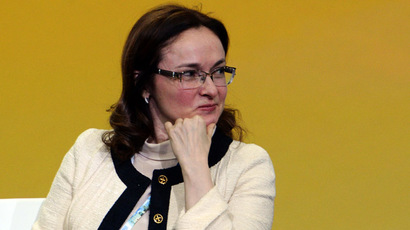Rates reshuffle: Russia’s central bank changes keys to better transparency

Russia’s main lender has made the price it charges other country’s banks for one-week borrowing the key benchmark for the market. Being at 5.5% it is by far a better reflection of Russia’s inflation than the previous anchor – the 8.25% refinancing rate.
As part of the effort by the Central Bank of Russia (CBR) to cap inflation and make the country’s banking more consistent, the regulator has shifted the focuses for other market players.
From Monday on the cost of one week borrowing, rather than for a day, officially becomes the benchmark for other banks. This puts the previous official anchor – the refinancing rate – in the middle distance. The key CBR rate is used by the banks to decide on their own interest rates policy, which ultimately translates into the cost of borrowing for both companies and individuals.
The “changes will increase monetary policy transparency and
improve its understanding by economic agents which contribute to
strengthening the interest rate and information channels of the
monetary policy transmission mechanism and achieving the price
stability – the ultimate goal of monetary policy,” CBR said
in a statement.
Since the key rate decides the ultimate borrowing costs in the
economy, it’s essential that it should better reflect inflation.
Being at 5.5 percent the new anchor is much closer to the August
inflation of 6.5 percent than the refinancing rate that remains at 8.25 percent.
There’s almost no liquidity in the refinancing rate, and it poorly reflects monetary policy of the CBR, but it’s widely used in legislation, regulatory documents, and banks’ contractual relationships, said the CBR head Elvira Nabiullina.
The CBR said refinancing rate will fall to match the new key rate by 2016, and it will atek two years to amend legislation, where the refinancing rate is widely used, Nabiullina explained.
One week auctions have become more important than daily repurchase operations, and the cost of a week’s borrowing corresponds with economic fundamentals much better, concluded Natalia Orlova, Chief Economist at Alfa Bank, talking to Vedomosti daily.













